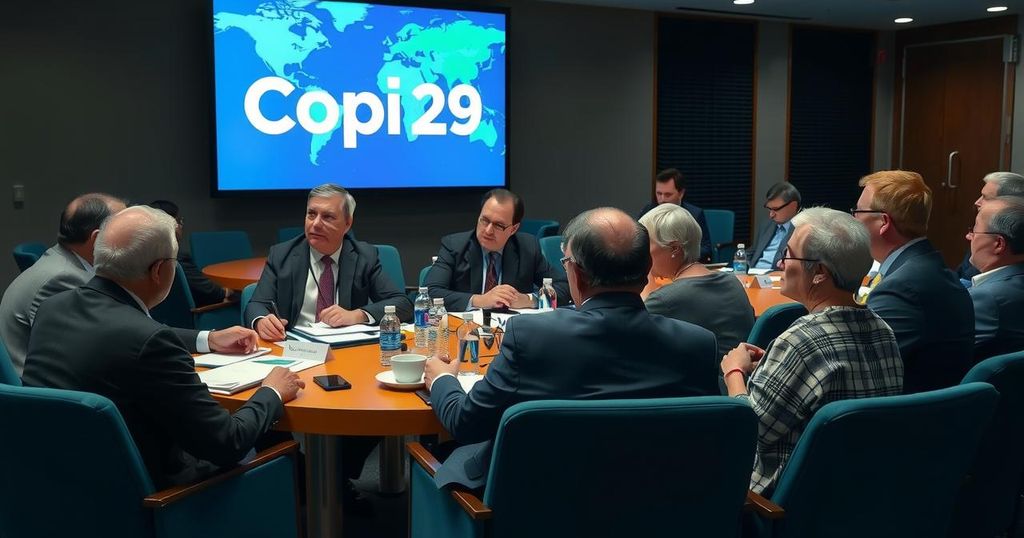During COP29 in Azerbaijan, discussions center on the financial needs of developing nations against the backdrop of climate change, with a report stating they require $1 trillion annually by 2030. The summit’s negotiations face pressure due to the expiration of previous financial commitments and the call for increased funding from wealthier countries.
As the COP29 climate summit progresses in Azerbaijan, discussions are intensifying around the urgent financial requirements for poorer nations to tackle the escalating climate crisis. A recent report from the Independent High-Level Expert Group on Climate Finance has revealed that developing countries will need at least $1 trillion annually by 2030, which is five years sooner than earlier predictions. This raises significant challenges concerning the commitment of wealthier nations to provide necessary funds. Amidst the summit’s activities, world leaders have begun returning home, with today’s focus shifting towards climate finance negotiations. The expiration of a 2009 agreement to contribute $100 billion annually adds to the urgency, particularly as this target was only met in 2022. Current estimations suggest that developing nations require a minimum of $1.3 trillion to effectively respond to climate-related disasters while transitioning away from fossil fuels. The overarching goal set by negotiators aims for no less than $1 trillion annually by 2035, equating to roughly 1% of the global economy, as outlined in a 2022 report by the Independent High-Level Expert Group. An updated report from this group is expected to be released soon, providing further insights into the prevailing funding challenge. Tensions during the negotiations have been high, exemplified by recent diplomatic incidents involving France and Argentina. On a more hopeful note, Barbados Prime Minister Mia Mottley has extended an invitation for a meeting with Donald Trump, emphasizing the need for collaboration despite political differences. Her appeal underscores the urgent need for collective efforts to address climate change, stating, “Let us find a common purpose in saving the planet and saving livelihoods.” This ongoing summit reflects not only the gravity of climate change but also the necessity for equitable financial commitments that can support vulnerable nations in their climate initiatives.
The global climate summit COP29 in Azerbaijan has highlighted the escalating financial needs of developing nations grappling with the effects of climate change. A recent report from the Independent High-Level Expert Group on Climate Finance posits a need for at least $1 trillion annually by 2030, emphasizing the urgency of securing funding commitments from affluent countries. The negotiations at COP29 are particularly critical as they seek to establish new financial frameworks following the expiration of previous commitments, highlighting the increasing financial demands to mitigate climate impacts on vulnerable populations.
In summary, the COP29 climate summit is focusing on the critical issue of financing the climate crisis, with estimates indicating that developing nations require at least $1 trillion annually by 2030. The impending expiration of previous financial agreements adds pressure to the negotiations, as the need for funds could exceed $2 trillion per year. Key figures in the climate discussion, including Barbados Prime Minister Mia Mottley, emphasize the importance of collaboration among nations to address climate challenges collectively.
Original Source: www.theguardian.com







